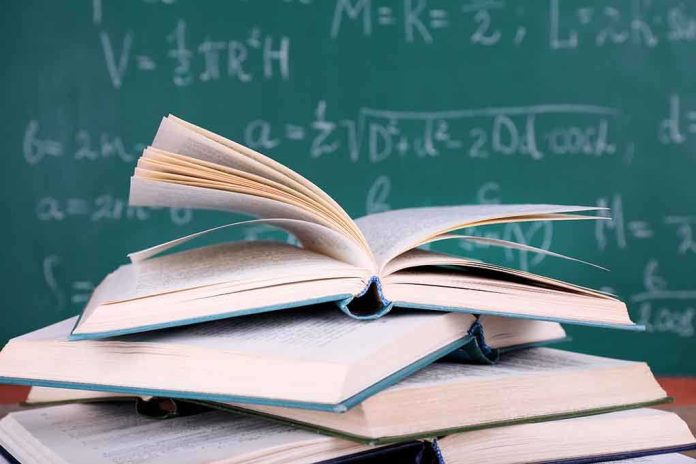
A troubling disconnect between high GPAs and basic math skills threatens to undermine the integrity of college admissions.
Story Snapshot
- UC San Diego reports a 300% increase in remedial math needs among certain student groups.
- High-achieving students are arriving with significant math deficiencies.
- The test-optional admissions policy is under scrutiny for masking true academic readiness.
- Concerns rise over the long-term impact on workforce readiness and educational equity.
Significant Decline in Math Proficiency
UC San Diego’s recent findings reveal an alarming drop in mathematical proficiency among incoming freshmen, particularly those with perfect high school GPAs. Over a span of five years, the university noted that students are arriving on campus unable to execute basic math operations, such as single-digit addition and number rounding. This trend is most pronounced among Low-Income California Foster Youth Plus (LCFF+) enrollees, with a 300% increase in remedial math needs since 2020.
The deterioration of math skills is attributed to the test-optional admissions policy widely adopted during the COVID-19 pandemic. By removing standardized testing requirements, universities aimed to increase accessibility but inadvertently eliminated a key tool in assessing genuine academic readiness. The policy change appears to have obscured significant skill gaps that would have otherwise been identified.
Impacts on Students and Institutions
The implications of this crisis are far-reaching. Students requiring remedial math face delays in their academic progress, potentially extending their time to graduation and increasing educational costs. For the universities, the burden of providing remedial education strains resources, diverting attention from advanced coursework and other academic initiatives.
This situation has disproportionately affected LCFF+ students, who are already at a disadvantage. With one in three needing remedial math, there is a growing concern about perpetuating educational inequality. The issue also poses a threat to the reputation of institutions like UCSD, which are seen as bellwethers for educational standards in the state.
Calls for Policy Reevaluation
Experts argue that the reliance on GPA as a primary admissions criterion must be re-evaluated. The disparity between reported academic excellence and actual competency suggests grade inflation and a disconnect between high school and college-level expectations. The UC San Diego Math Department’s acknowledgment that their crisis is worse than other campuses underscores the need for immediate policy review and reform.
Without addressing these systemic issues, the workforce may soon see graduates lacking essential quantitative skills, which could undermine the competitiveness of STEM fields and other data-driven industries in California and beyond.
Sources:
The College Investor: High GPAs and Test-Optional Mask Poor Math Skills at College
Hoodline: Report: UC San Diego Freshmen Arriving With 4.0s Can’t Round Numbers or Add Single Digits
UC San Diego Senate Documentation: SAWG Report on Admissions Review




